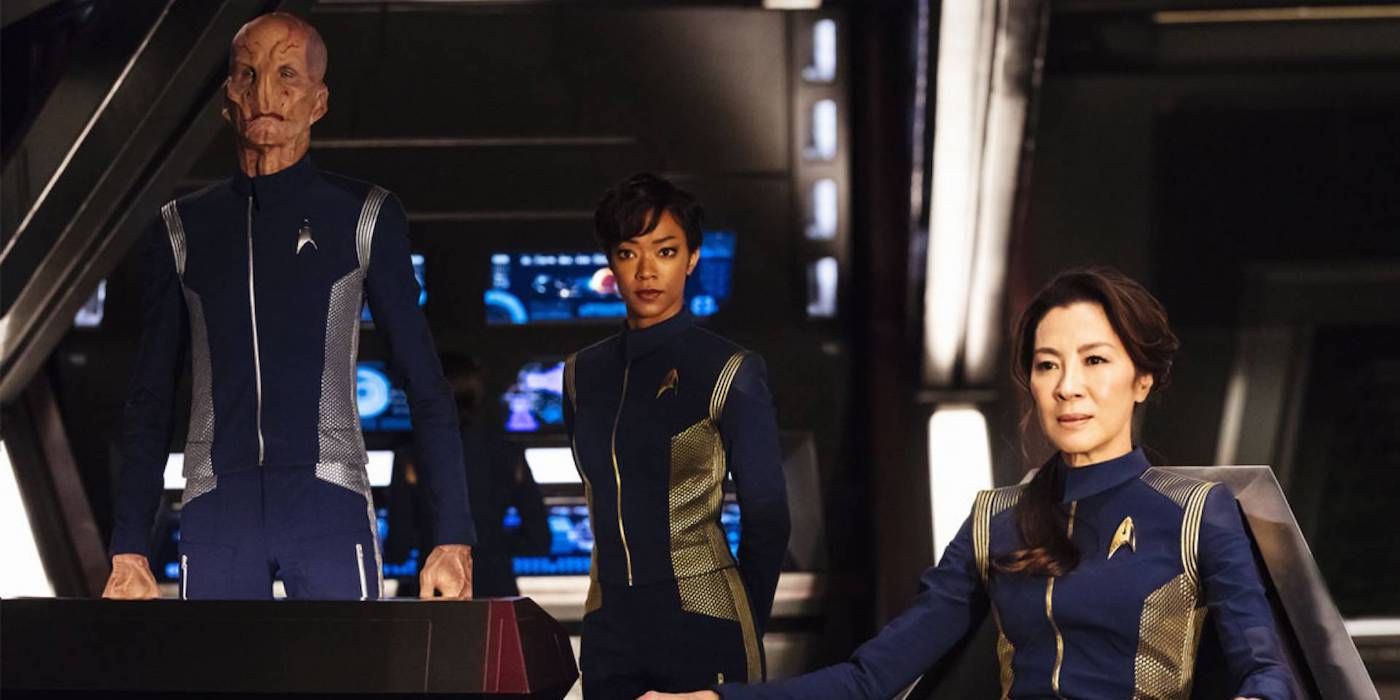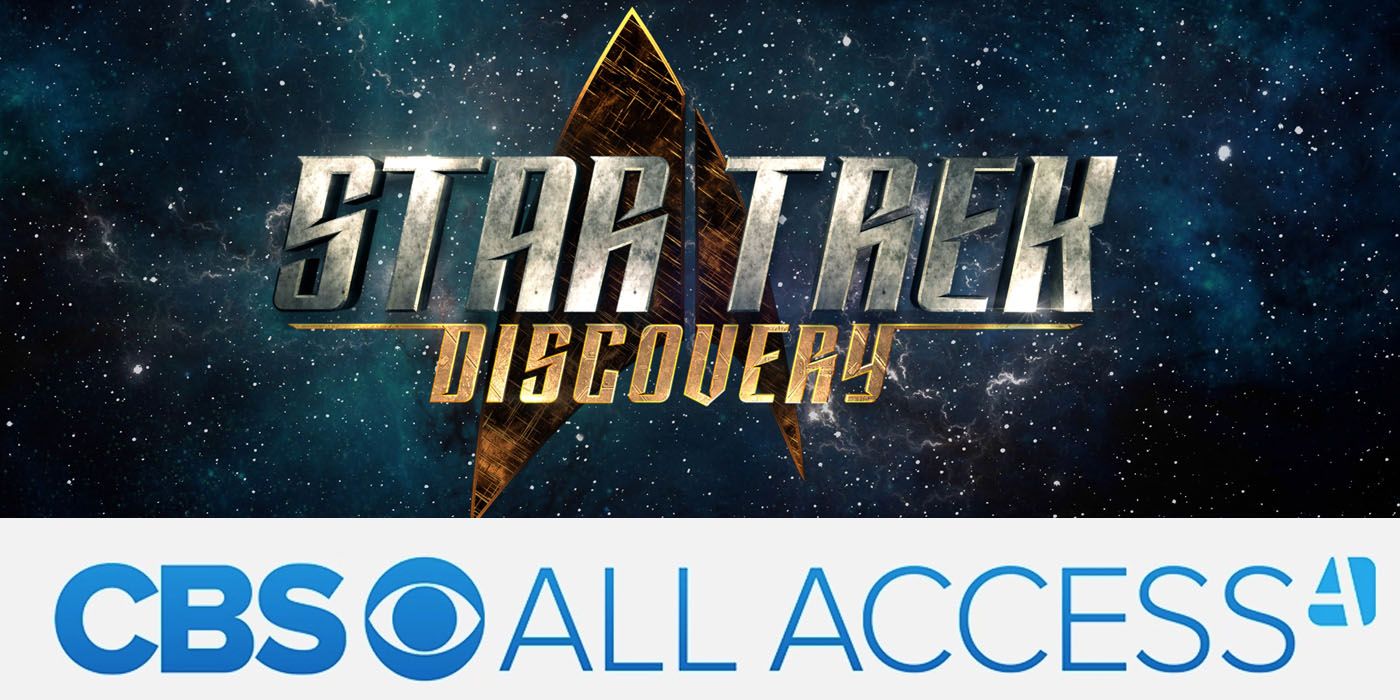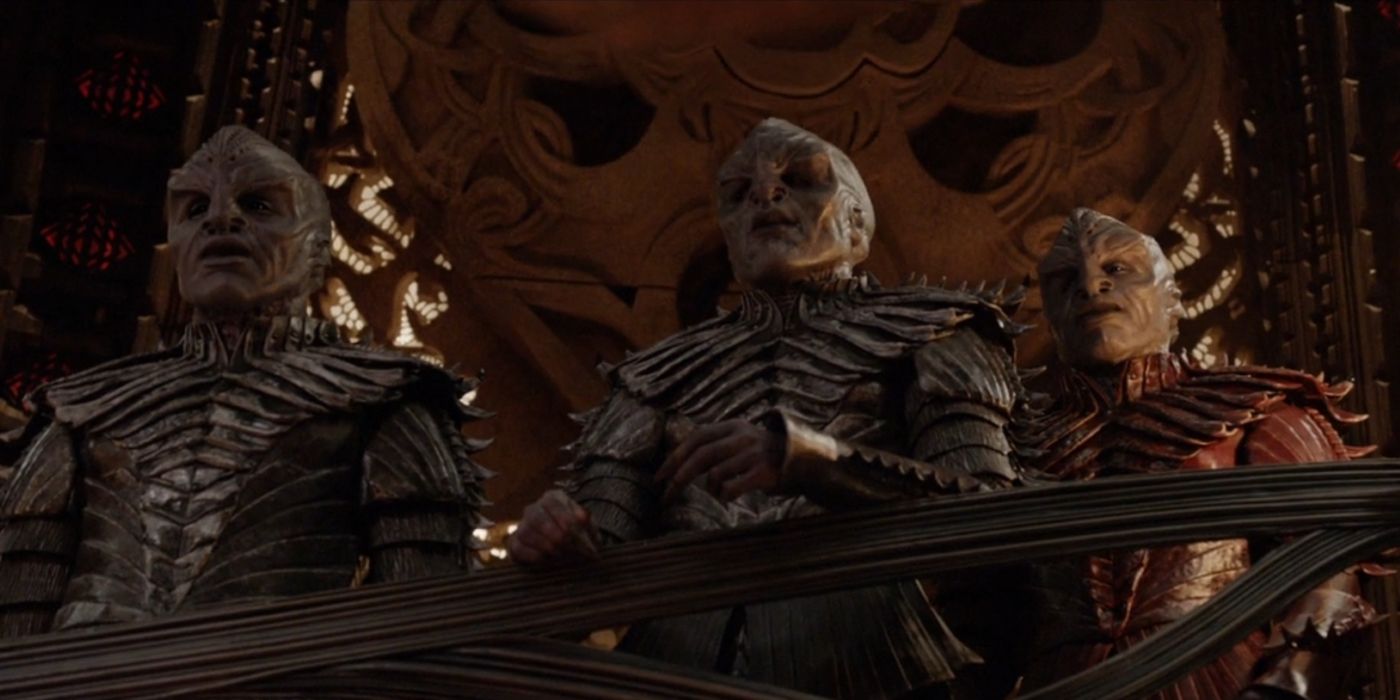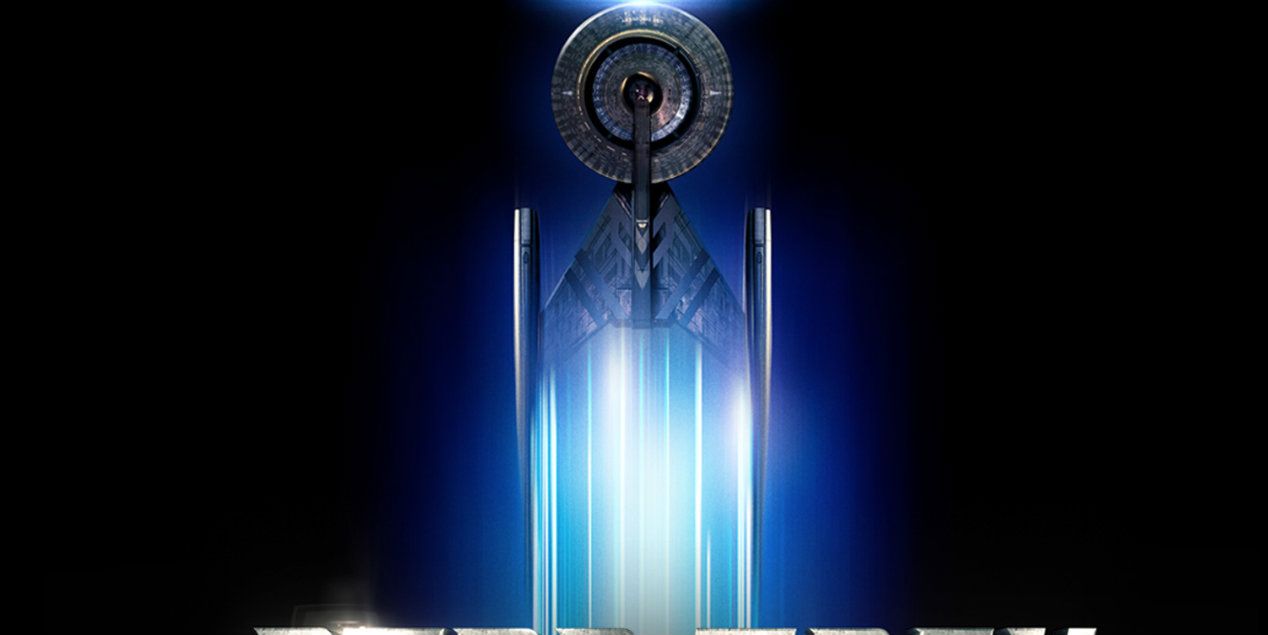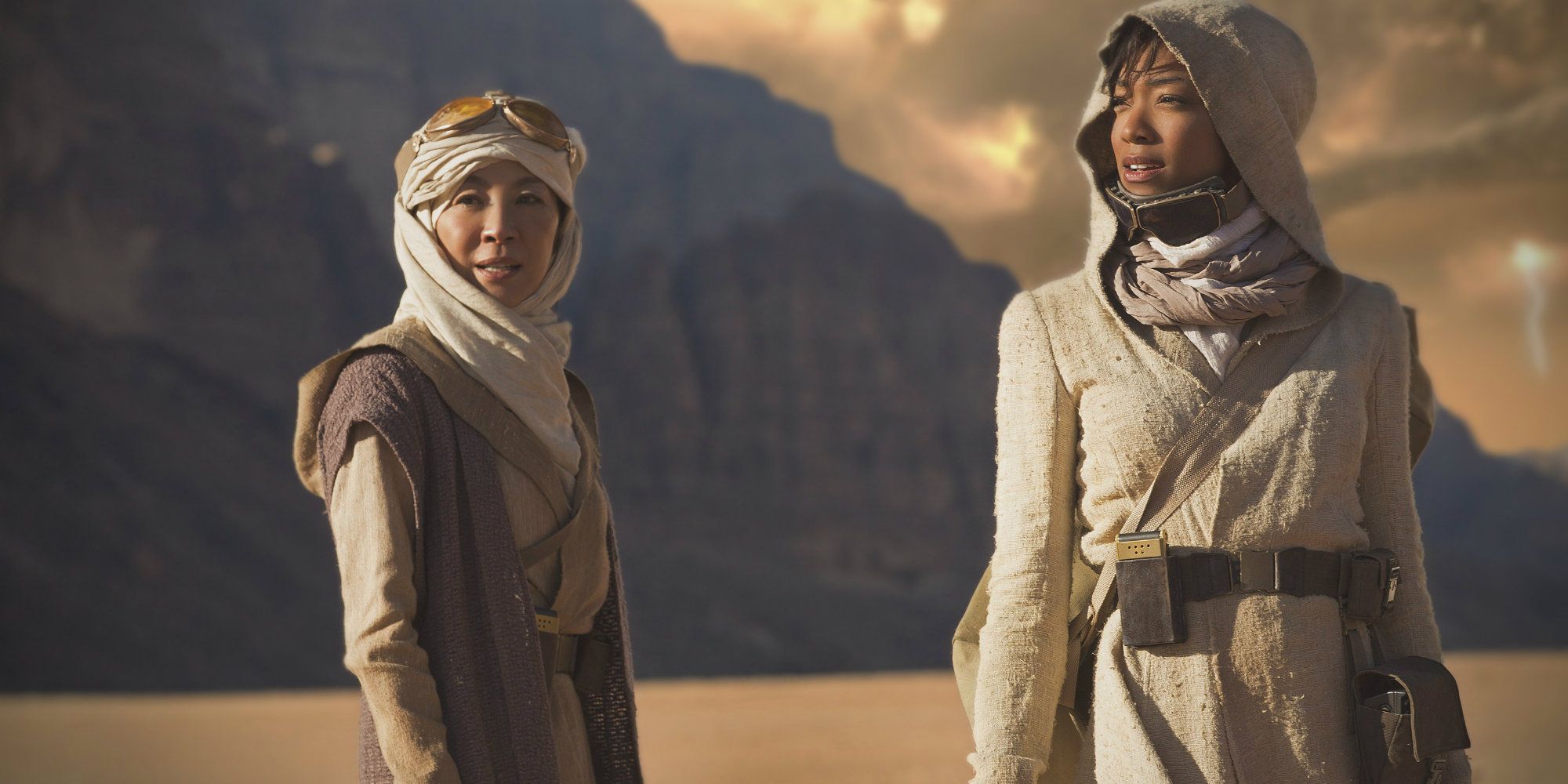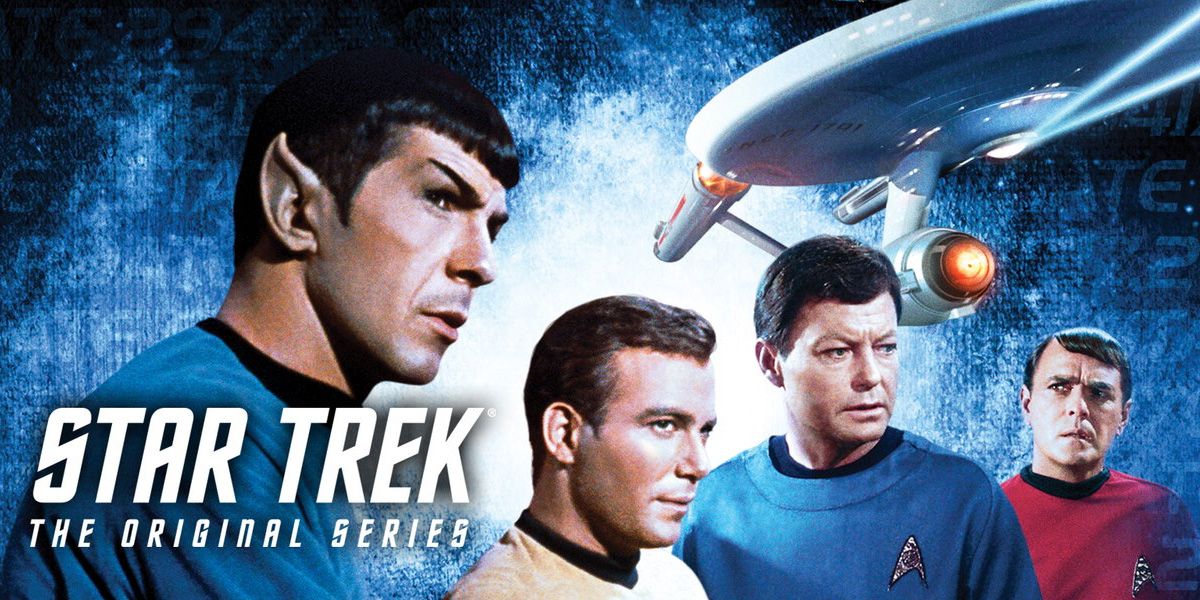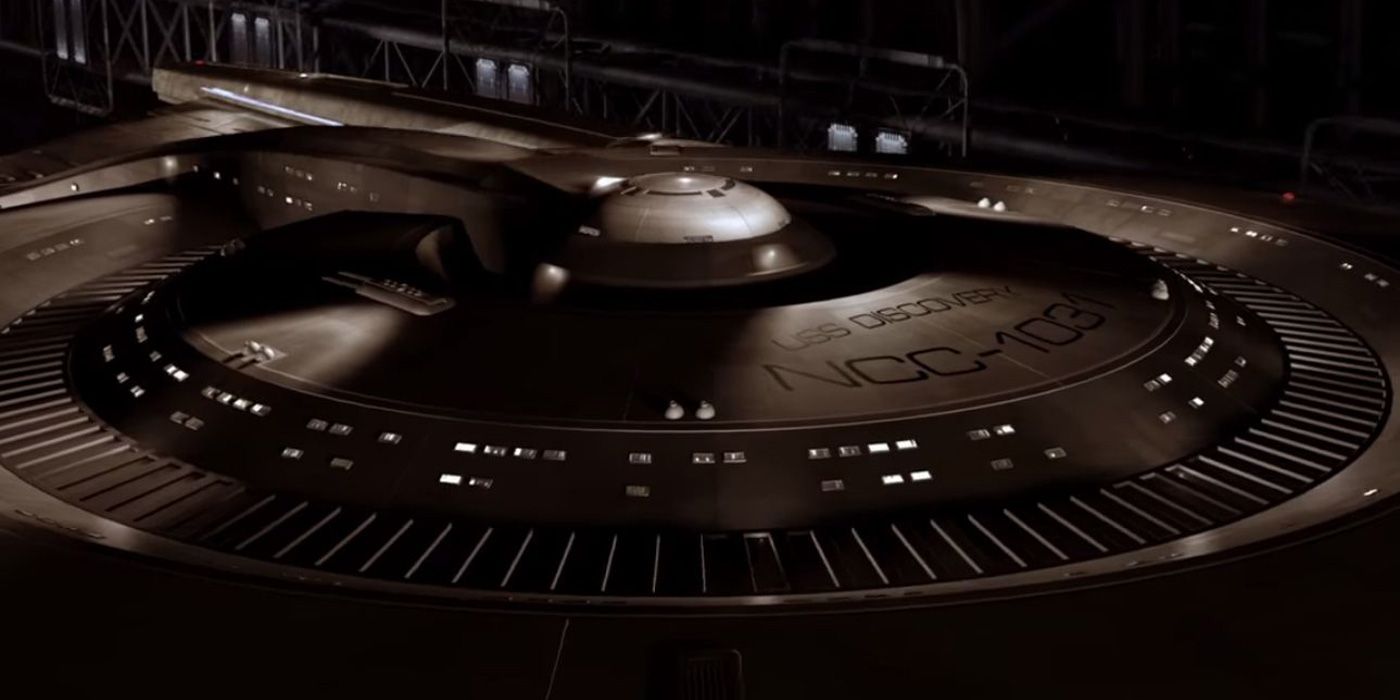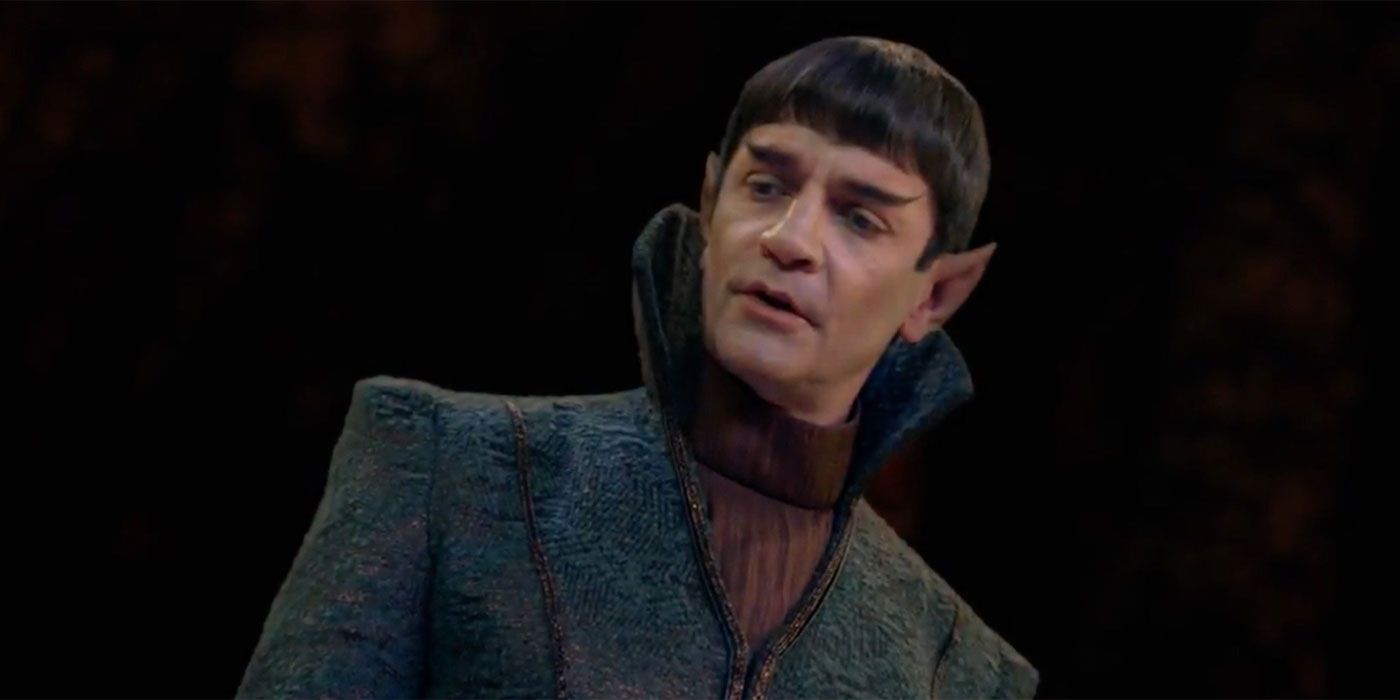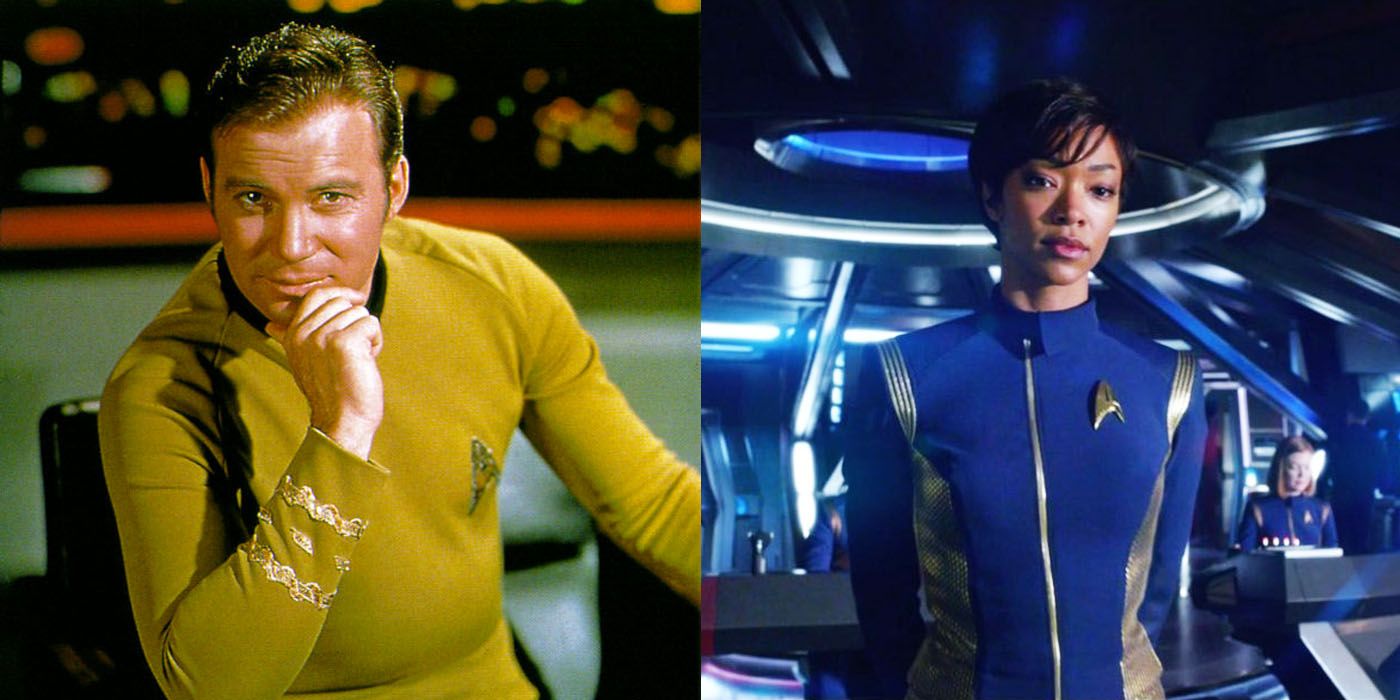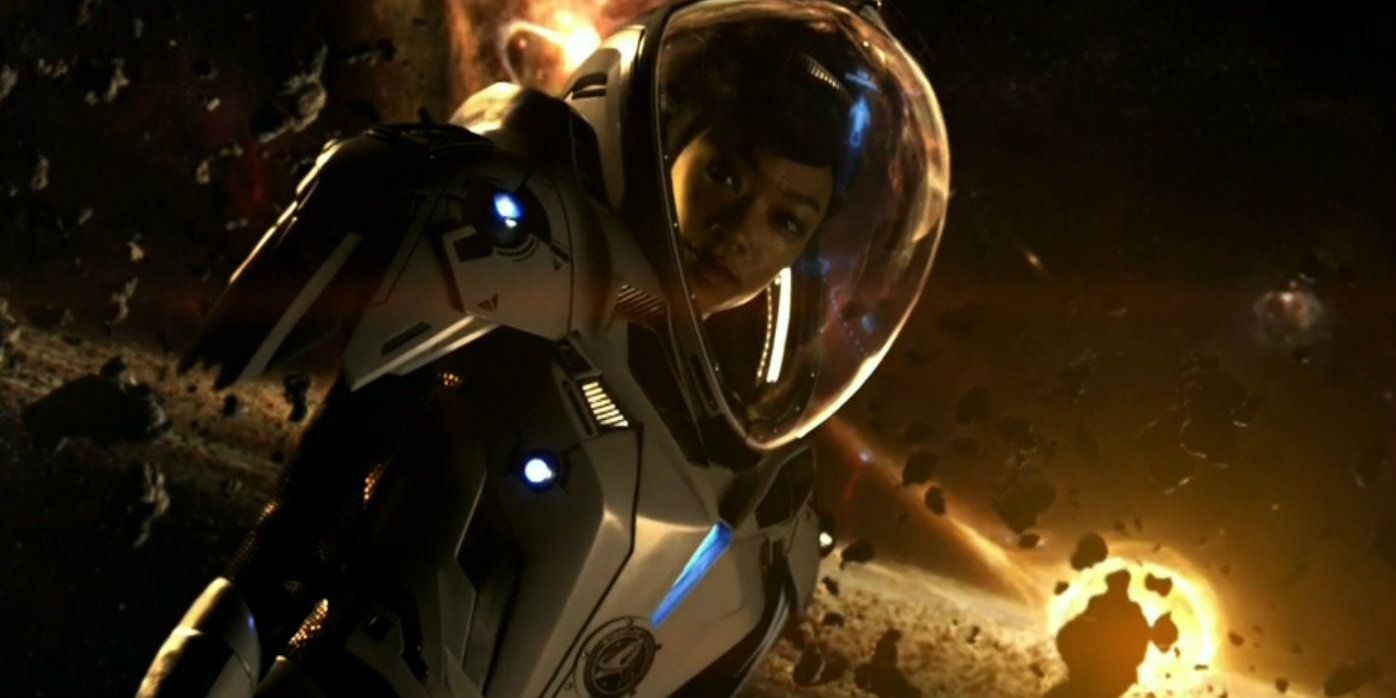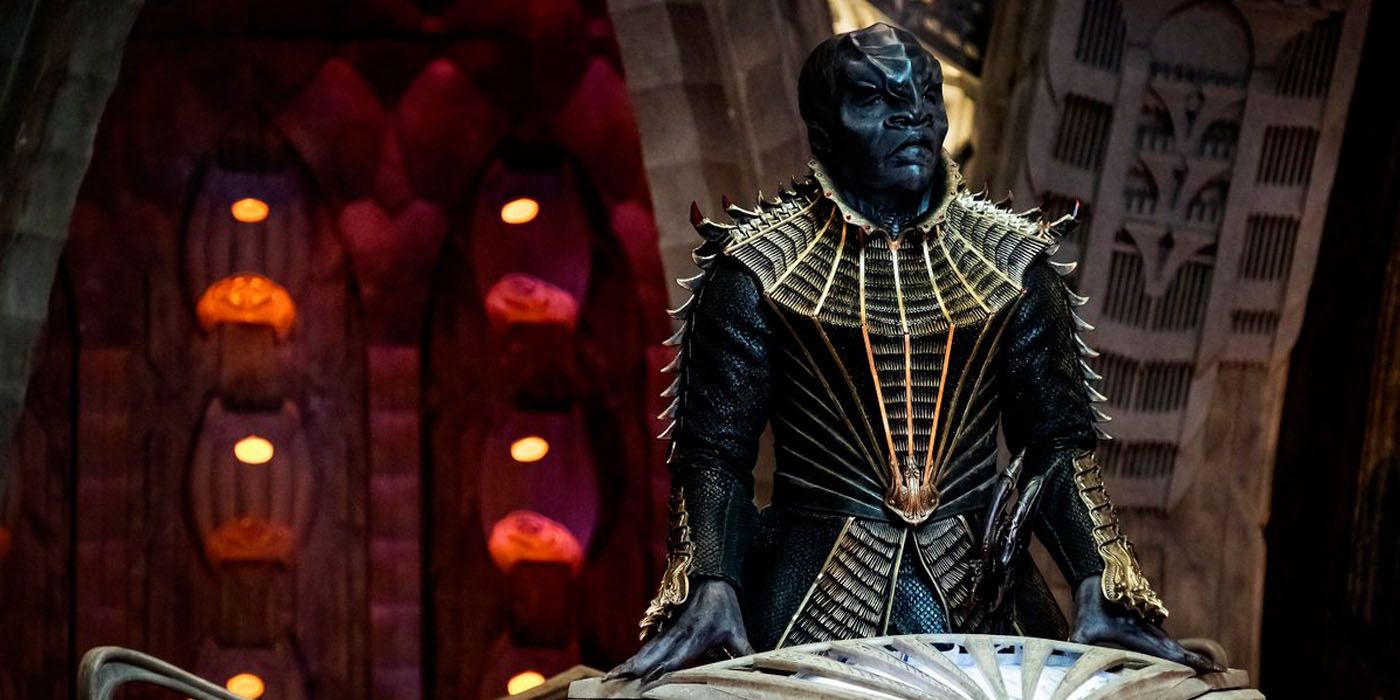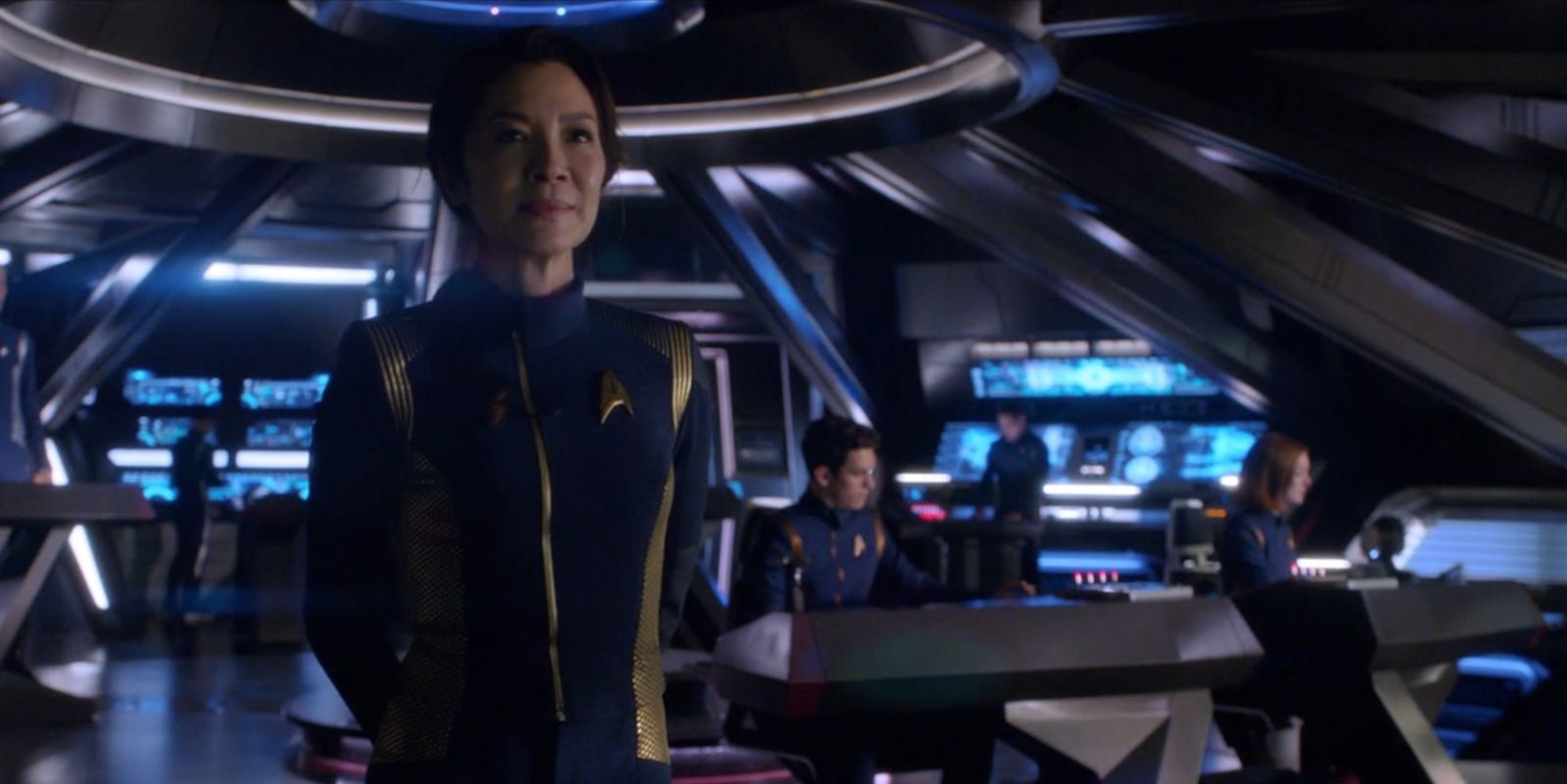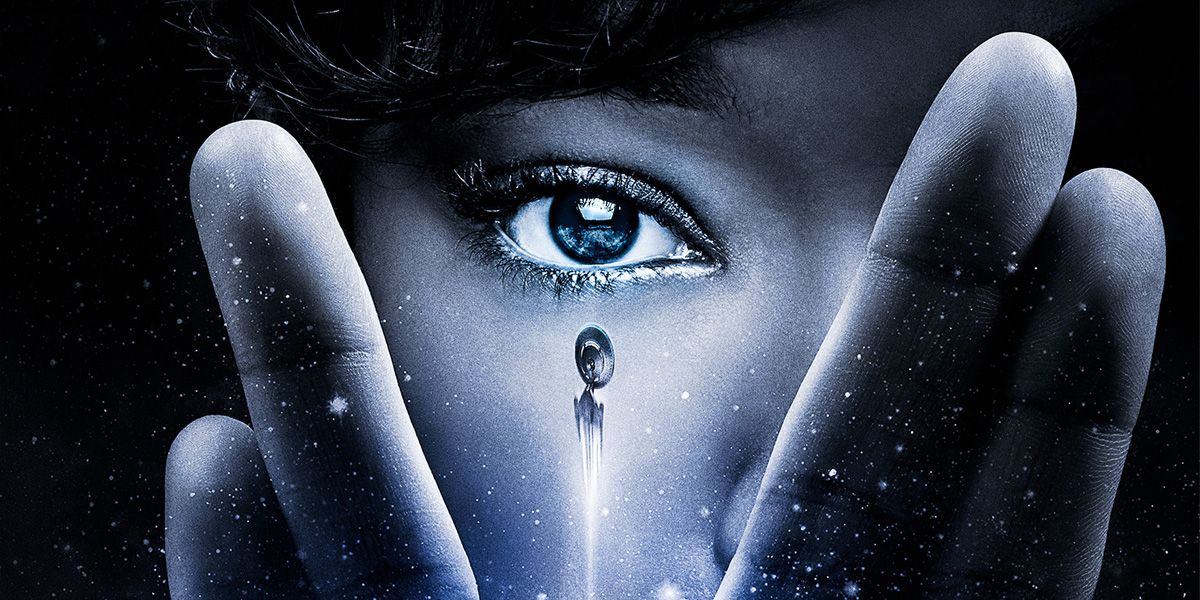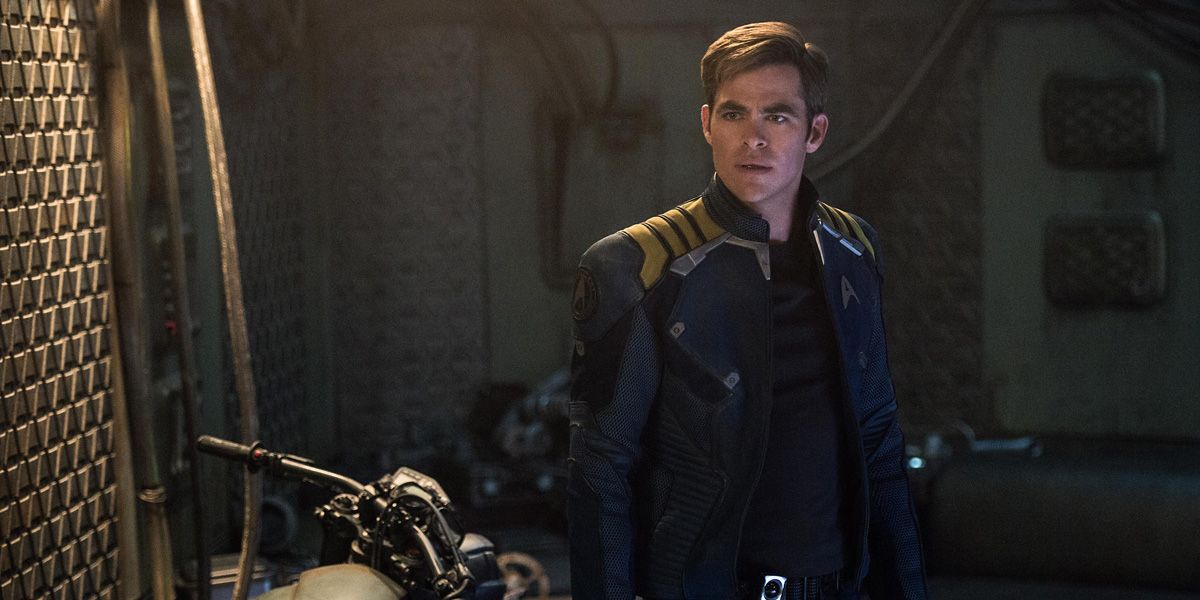It's been a long few years waiting for the debut of CBS' much anticipated Star Trek: Discovery series, but the wait is now almost over. After many delays, controversies, and rumors of behind the scenes drama, fans began to wonder if the show would ever really get off the ground.
But now, it's finally ready, with Discovery premiering on the CBS All Access streaming service on September 24th.
The first episode will air on both CBS and All Access, with later episodes airing each week after that only on the streaming service. CBS has a bold plan to take Star Trek where it hasn't gone before, but will that plan ultimately fail or succeed?
It's been a long time since a Star Trek series appeared on TV and the last, Enterprise, isn't one that fans and critics consider very successful. With all the missteps along the way, what will happen to Star Trek: Discovery? There are a lot of factors in play that can make or break the show.
Here are 7 Reasons Why Star Trek: Discovery Will Fail And 8 Reasons Why It Will Succeed.
Succeed: Great cast
One of the best assets of Star Trek: Discovery is its cast. CBS didn't mess around when it decided to put two amazing actresses in lead roles in the series, including The Walking Dead's Sonequa Martin-Green and Crouching Tiger: Hidden Dragon's Michelle Yeoh.
But that casting was just the tip of the proverbial iceberg. The series also features a pretty solid male cast, too, including Harry Potter's Jason Isaacs, Penny Dreadful's Shazad Latif, and Rent's Anthony Rapp. The network also knew that having a good actor behind one of its key alien characters was also important, which is why we'll see the incomparable Doug Jones as the Kelpian Lt. Saru.
This casting excites a lot of Star Trek fans, thanks to the quality of the actors and their wide range of previous acting roles.
Fail: CBS All Access exclusive
It seems like there's a new streaming service popping up nearly every day. And every single one of those streaming services costs money. In addition to the big three that most people subscribe to (Netflix, Amazon Prime, and Hulu), some networks now have their own separate services, including CBS.
The CBS streaming service All Access allows subscribers have access to most of CBS' programming. Starting next month, though, All Access will also be the exclusive home of Star Trek: Discovery, meaning that the series will not appear anywhere else in the United States.
This poses a huge challenge for CBS, because until now, sci-fi fans haven't really shown much interest in the streaming service. So the big question is will they pay fan additional $5.99 per month just for new episodes of Star Trek?
Succeed: Klingons as bad guys
The Klingons have a long, sordid history. Originally, they were the bad guys and often appeared as the main antagonists in the original series, aliens that were always a thorn in Captain Kirk's side. But their role evolved by the time Star Trek: The Next Generation premiered, with a Klingon actually serving on a Starfleet vessel. That series painted Klingons in a new light and made them more relatable, which some fans liked, but other fans hated.
Star Trek: Discovery plans on taking Klingons back to their roots. Because the show will be a prequel to the original series, the Klingons are still the bad guys with a cold war raging between the Klingon Empire and the Federation. This will create a lot of fascinating tension for the new show.
Fail: Delayed premiere
When CBS announced the original premiere date for Star Trek: Discovery, it was supposed to air earlier this year. Then, the series got delayed for nine months. That kind of delay often a sign that not all is well with the health of a series.
CBS announced that the delay was necessary because they wanted to "maintain quality" for the series, but what exactly does that mean? How bad was everything going before they decided to push it back? Perhaps it's a bad assumption to believe that there were some issues with the series, but these sort of delays are rarely good.
Even casting announcements occurred later than fans would have anticipated. So what happened? Will the show really have the quality it deserves? Or is CBS still trying to throw it all together and hope for the best?
Succeed: Strong female lead
The biggest news to come out of Star Trek: Discovery is that the series will focus on a female lead. Lieutenant Michael Burnham may not serve as a captain, but the show will revolve around her, meaning that she is the first female lead on a Star Trek series since Captain Janeway led Voyager, which went off the air in 2001.
With Star Trek always focused on diversity, this is a good choice for the series, especially since that lead is also a woman of color. It's even better when fans realize that this series takes place before Captain Kirk ever commanded the Enterprise.
The other first is that the show will focus on a character who isn't a captain, meaning that fans will get to see the life of a different kind of member of Starfleet.
Fail: The loss of Bryan Fuller as showrunner
Star Trek fans remained skeptical about CBS wanting to revive the Star Trek TV franchise, especially after the mediocre performance of the last few movies. But one of the early announcements about the series gave them something to hope for: Bryan Fuller agreed to take on the new series as showrunner.
Fuller already proved himself as a valuable writer and showrunner with shows like Pushing Daisies and Hannibal, but he actually got his start as a writer on Star Trek: Deep Space Nine and Star Trek: Voyager. Fans were understandably excited when he attached himself to the project.
And then Fuller dropped out, for unknown reasons. Not only did this make fans anxious again about a new Star Trek series, but it also caused some of the delay in getting the show done in time. Although Fuller made some key decisions on Discovery before his departure, will the show suffer from his lack of participation?
Succeed: Prequel to original series
Timing is everything, especially when it comes to figuring out when to place the timeline of a new Star Trek series. Although some fans hoped that the new show would focus on something beyond The Next Generation and Voyager, others hoped for something that was more of a throwback to the original series; something that would cover things mentioned on that show, but never actually portrayed.
CBS made a good decision to make Discovery a prequel to the original series. That means that fans will now get to see many storylines that feature things that happened before Captain Kirk took over the helm of the Enterprise. There is a lot of interesting history there, including the cold war between the Federation and the Klingons, that should make for interesting viewing.
Fail: Too ambitious
When you have a show with such a beloved history as Star Trek, there is a lot at stake when trying to create a new series within that universe. Expectations from fans are exceptionally high, perhaps even too high, and that means that CBS has a lot to live up to in making a series to please them.
So CBS has a lot of ambitions for this show, but are those ambitions too great? CBS promises fans that Discovery will remain truthful to the universe that Trek fans are already so familiar with, but that it will also create new plots and stories within that universe that aren't just a retread of things already seen before. Is that even possible?
Then there are the special effects: CBS wanted to blow the look of space and the Discovery starship out of the water, but will fans accept that it's enough? Or will they think that the new effects ruin the entire spectacle?
Succeed: Sarek as a character
You can't have Star Trek without having a Vulcan, and fortunately, Vulcans have very long lifespans. One of the most famous Vulcans throughout Trek history is Sarek, who is often known as the father of Spock. Sarek has appeared on several of the Trek TV series, as well as in a few movies.
Fans are familiar with the older version of the character, but Discovery will offer insight into a younger version of Sarek, as portrayed by actor James Frain. But Sarek also has more importance to the new series than just appearing on it: the lead character, Michael Burnham, is his adopted daughter, making her Spock's adopted sister. This will affect everything about the character and her background and will thrill fans of the original series.
Fail: Not targeted at existing Star Trek fans
Star Trek fans are a picky lot, and rightfully so. The long history of the show has offered up some of the best science fiction on TV and in the movies. One might think that CBS would play to those fans, who will ultimately decide if the new series is worthy or not.
The new Trek movies did not focus on that existing fanbase and even re-wrote some of the show's long history by offering it up as an alternative universe, to the displeasure of many longterm fans.
Although CBS knows that it needs existing fans for this show to succeed, it still seems to want to appeal to a more mass audience. Will the network know how to balance the hand-holding for new fans and the nods to existing fans to make this show work?
Succeed: serialized storytelling
In the past, each Star Trek episode was usually a self-contained story, with a sort of "alien of the week" plot that saw quick resolution. Although that worked in the past, today's TV watchers seem to like stories that evolve over time with more serialized storytelling. It's a lot easier to keep audiences tuned in week after week when plot elements reveal themselves slowly than wrapping up each episode in a perfect little plot bow.
Fortunately, Discovery will follow more serialized storytelling and will feature a longer story that will probably include a lot of mysteries, discoveries, and cliffhangers that will keep fans wanting to keep watching. This will keep fans subscribing to the CBS All Access service to find out what happens next.
Fail: New Klingon design
When Klingons first appeared on the original series, they still looked very human with a few prosthetics to make them stand out. It was the 1960s and the show didn't have a huge special effects and makeup budget, so that made sense at the time.
But by the time Klingons appeared in Star Trek: The Motion Picture, they looked completely different. Trek showrunners continued to work with that design and by the time The Next Generation appeared on TV, fans had a distinct impression of what Klingons looked like.
So why did CBS decide to give the Klingons a completely new makeover for a show that takes place before the original series? Shouldn't they appear similar to how they were on that show? Instead, they're nearly unrecognizable as Klingons, although CBS promises there's a good reason for that. Will fans buy it, though?
Succeed: focus on optimism and hope
Originally, Star Trek was all about a utopian federation where Earth came together in the name of science to explore the world in a way not possible before. It's right there in the opening speech: "to seek out new life and new civilizations." Every episode was a lesson in what humanity (and aliens) could achieve with hope.
The movies, though, lost a lot of that positive outlook and often felt too dark, as if there were a constant threat that humanity always faced. That angered a lot of fans because it wasn't their version of Trek as they remembered it.
The good news is that, although Discovery will have its dark moments, CBS promises that it will ultimately offer up a tale of hope and optimism. And that's something that Star Trek fans want to see.
Fail: split seasons and only one episode released each week
When Star Trek: Enterprise last aired, TV viewing habits consisted of making time every week to watch favorite shows live, one episode at a time. But thanks to the emergence of major streaming subscription services like Netflix, TV watching habits began to change. Many TV viewers now prefer to watch shows on their own time, without worrying about scheduling those shows into their busy lives.
Those who stream TV shows also generally prefer watching full seasons over the course of several days or weeks, especially with shows that feature serialized storytelling. But for some reason, although CBS is making Discovery an exclusive on its streaming service, the network still plans on clinging to the old TV model of airing one episode per week. Even worse than that, though, the network plans on splitting the season in half with a big break between those episodes.
Will today's streaming audience want to wait a week between episodes and then many weeks for more? Or will fans wait until a full season airs and then watch it all in full later? How will this affect the show's success going forward?
Succeed: Not related to J.J. Abrams' Star Trek universe
It's not a secret that some diehard Star Trek fans hate what J.J. Abrams did to that universe. Not only did he completely reset the universe and offer up something of an alternate history, but he re-wrote characters' backgrounds, making them very different from the originals versions'.
Things got even worse when Abrams re-wrote the entire Khan plot, a favorite by long-time fans, turning Khan into something completely unlike the character fans were already familiar with and changing the Spock and Kirk dynamic from that story.
There is some good news about Discovery, though. This series will have absolutely nothing to do with the Abrams universe. Instead, it is part of the existing canon of Star Trek stories laid out by the previous TV series. And that's certain to bring in some viewers for All Access.
---
Do you think Star Trek: Discovery will succeed or fail? Sound off in the comments!


